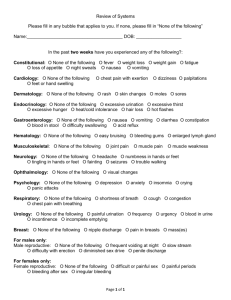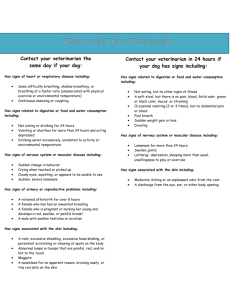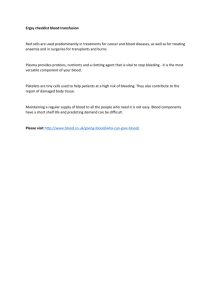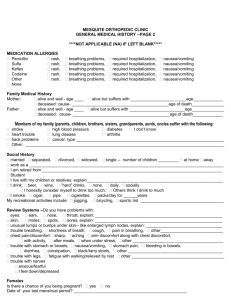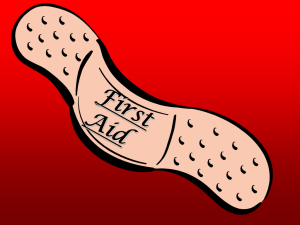cancer_case_filled_out_worksheet
advertisement
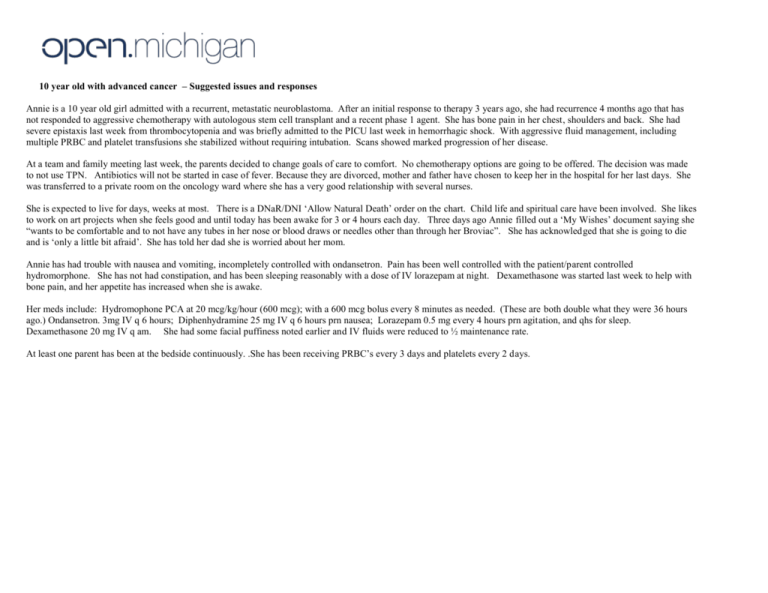
10 year old with advanced cancer – Suggested issues and responses Annie is a 10 year old girl admitted with a recurrent, metastatic neuroblastoma. After an initial response to therapy 3 years ago, she had recurrence 4 months ago that has not responded to aggressive chemotherapy with autologous stem cell transplant and a recent phase 1 agent. She has bone pain in her chest, shoulders and back. She had severe epistaxis last week from thrombocytopenia and was briefly admitted to the PICU last week in hemorrhagic shock. With aggressive fluid management, including multiple PRBC and platelet transfusions she stabilized without requiring intubation. Scans showed marked progression of her disease. At a team and family meeting last week, the parents decided to change goals of care to comfort. No chemotherapy options are going to be offered. The decision was made to not use TPN. Antibiotics will not be started in case of fever. Because they are divorced, mother and father have chosen to keep her in the hospital for her last days. She was transferred to a private room on the oncology ward where she has a very good relationship with several nurses. She is expected to live for days, weeks at most. There is a DNaR/DNI ‘Allow Natural Death’ order on the chart. Child life and spiritual care have been involved. She likes to work on art projects when she feels good and until today has been awake for 3 or 4 hours each day. Three days ago Annie filled out a ‘My Wishes’ document saying she “wants to be comfortable and to not have any tubes in her nose or blood draws or needles other than through her Broviac”. She has acknowledged that she is going to die and is ‘only a little bit afraid’. She has told her dad she is worried about her mom. Annie has had trouble with nausea and vomiting, incompletely controlled with ondansetron. Pain has been well controlled with the patient/parent controlled hydromorphone. She has not had constipation, and has been sleeping reasonably with a dose of IV lorazepam at night. Dexamethasone was started last week to help with bone pain, and her appetite has increased when she is awake. Her meds include: Hydromophone PCA at 20 mcg/kg/hour (600 mcg); with a 600 mcg bolus every 8 minutes as needed. (These are both double what they were 36 hours ago.) Ondansetron. 3mg IV q 6 hours; Diphenhydramine 25 mg IV q 6 hours prn nausea; Lorazepam 0.5 mg every 4 hours prn agitation, and qhs for sleep. Dexamethasone 20 mg IV q am. She had some facial puffiness noted earlier and IV fluids were reduced to ½ maintenance rate. At least one parent has been at the bedside continuously. .She has been receiving PRBC’s every 3 days and platelets every 2 days. 1 Anticipating the end Patient issues Family issues MD issues Nurse/RT/etc. issues Symptoms, will I hurt? Are my parents going to be ok? Will I be alone? Who will be with me? Will I be awake? What happens when I die? Are parents not on the same page? What if there are disagreements and concerns? Are we doing the right thing? Are there other treatment options? Siblings, extended family. What are the spiritual care needs? Memory making (voice banking, photos, etc) Anticipatory guidance: What type of death will this be? (resp, dehydration, bleeding) Are the nurses who know her struggling with the decision?. What are the plans for care as she gets worse? Which staff members should/will want to be here when she dies?\ Does the doctor know what to do? Are we going to stop the fluids and the monitors? What is my role in support? Will the palliative care team be here or near? Demedicalizing care. Who are the key people (staff, family) who need to be notified that the end may be near? What is the paperwork I will need to know? Useful questions and phrases for the family 2. Pain, discomfort, dyspnea What tools/resources are available? (pocket card, EOL order set, Palliative Care consultants, Decedent Affairs) At some point you (parents) may need to let her know that you are going to be ok. You (Annie) can tell your parents that you are going to be ok. Who in the family has had a different point of view or set of priorities, or is struggling as the situation has changed in the last few days? Has anyone talked to you about what the end could look like? Who else needs to be here? What spiritual or cultural people or practices are important? We are going to turn off the monitors, so that we can focus on her and not on the machine. We want to treat her like a child and not a patient. Patient issues Family issues MD issues Nurse/RT/etc. issues Will you take care of my pain? I am afraid. Will the drugs make her stop breathing? How will I know if she is in pain Assess pain (visual, verbal, pulse and resp rate; ask parents what they see) Are there other treatable causes of pain or discomfort? (positional, gi obstruction, neuropathic) Non-pharmacologic treatments. Fresh air, fan, aroma therapy, massage, distraction, gentle suctioning, music. Drugs: Non-steroidals (ibuprofen, ketorolac) Opioids: increase as indicated by 25 to 50% at intervals.(see card for doses) Benzodiazepines (see card) If time: bisphosphonates, radiation for bone pain Useful questions and phrases for the family Re-assurance that opioids at the doses we use will not cause death. Principle of ‘double effect’ Dosing details, double effect. To Annie (or to parents): We are going to be here. You look like you might be worried or scared. What are you afraid of / worried about? Tell me where it hurts. How bad is the pain? Have you used the 1 to 10 way of telling us… where 10 is the worst. (or finger distance scale). We will use medicine in doses that will lessen that feeling that it is hard to breathe. At large doses, these medicines can slow down someone’s breathing. We do not anticipate using high doses, but if we do our intention is to use just enough to relieve discomfort.. Remember our goal now is to keep her comfortable. 3. I’s & O’s of dying Patient issues Family issues MD issues Nurse/RT/etc. issues Vomiting stinks! I hate to throw up! Nose bleeds are scary. Is she going to bleed to death? When do we transfuse? What else helps? FFP? Platelets? bleeding is unlikely to be painful. Dark sheets can help. Is it ethical to use blood products at end of life? Bleeding is scary! Vomiting looks so uncomfortable and distressing. What may be causing the vomiting: Tumor, obstruction, opiate side effect, GI bleeding? Evaluate for possible obstruction. Consider changing opiate. Diphenydramine 1-1.25 mg/kg IV/po q 6 hrs Lorazepam 0.05 mg/kg IV/po q 1 – 4 hrs Ondansetron 0.1 – 0.15 mg/kg IV q 6 hrs Granisetron 0.01 mg/kg IV q 8 hrs. Metaclopramide 0.01 - 0.02 mg/kg IV q 4 Haloperidol lactate 0.05 mg /kg q 4 to 8 hours (off label for IV, may alter cardiac conduction) When drugs effective, schedule them not prn Fan, change temperature, cold cloth on forehead; odor management. May include: Bleeding Can she be thirsty? Nausea, vomiting Secretions, noisy breathing Useful questions and phrases for the family Internal bleeding is unlikely to be painful. It is possible that she will have bleeding. If she has a frightening or severe nosebleed, we can give her platelets. We want control her nausea and vomiting. There are other medicines that we can use. An effective drug may make her more sleepy. Patient issues 4. Seizures, agitation, myoclonus Useful questions and phrases for the family 5. Last breaths Useful questions and phrases for the family Family issues MD issues Nurse/RT/etc. issues Patient issues Family issues MD issues Nurse/RT/etc. issues How is my family going to do after I’m gone? Am I going to be able to hold it together? What will it look like? Will she be scared? Time to death is unpredictable. Breathing will become irregular. The ‘last gasp’ is often not the last breath. Will I be able to control my emotions? What should I say? Am I going to give her that last dose of morphine that ‘tips her over the edge’? (unlikely in this case) What should I be ready for? Don’t be afraid to tell her that you are going to miss her, that you are going to be OK, and that it is OK for her to let go. One thing that you can let her know: You promise that someone will be with her, that you won’t leave her alone. Let us know how much or how little you would like me to be present in the room with you. Different families have different needs and I would like to meet your expectations to the best of my ability. We may know the end is near when her breathing becomes irregular and has pauses and some gasps followed by pauses. It won’t surprise us if you hear a large breath or gasp followed by a pause that you think is her final breath….and then she takes another. Let us know if she looks uncomfortable or scared. Patient issues 6. After the death Family issues MD issues Nurse/RT/etc. issues What do we do now? Prounouncing death: Time for family to be with the body. Advise family that you will be listening for 2 minutes. Check heart, pulses, breathing, at least one reflex. What tubes or IV’s can and can’t be removed? Are there religious or cultural norms? Note the time of death as the time of your exam, not the report of the nurse or family. Useful questions and phrases for the family Paperwork, death note, death forms. Gift of life, autopsy consent or decline. I am going to record the time of death as _____. Annie has stopped breathing and her heart is no longer beating. I am so sorry for your loss. You can spend as much or as little time as you would like with Annie (Annie’s body. Would you like to take part in preparing her ? I need to ask you again: have you though whether having her body examined in an autopsy would be of some value? When you and your family decide it is appropriate, her body will be removed to a private part of the hospital where the funeral home can pick her up. Other family members could visit her body there. Major learning points: What guidelines exist in the End-of-Life Order set and in the “No Code Pocket Card”? What are safe approaches to bone pain in a child on opioids and benzodiazepines? What are the benefits and burdens of transfusion support for a dying child? What non-pharmacologic interventions may help with management of bleeding at the end of life? What options are there for managing significant nausea and vomiting? How can one deal with parental guilt and anticipatory grief?
